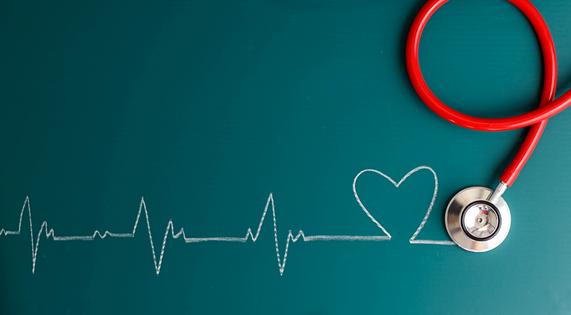When should you worry about abnormal heartbeats?
Published in Health & Fitness
Has this ever happened? You’re relaxing at home, walking outside, or doing yard work when suddenly it feels like your heart flutters or skips a beat, or beats at a faster rate or in an irregular rhythm. These sensations, commonly called heart palpitations, frequently last only seconds but can be unsettling in the moment.
For the most part, palpitations are common and nothing to worry about, according to cardiologist Dr. Shaan Khurshid with Harvard-affiliated Massachusetts General Hospital. “Basically, everyone gets them from time to time. Often there is no precipitant, or they may be triggered by consuming too much caffeine, being dehydrated, or feeling stressed or anxious,” he says.
Still, there are situations when these strange heart sensations may indicate something more serious. You should seek immediate medical attention if palpitations are accompanied by troublesome symptoms, such as shortness of breath; chest pain; discomfort in your arms, neck, or jaw; excessive sweating; or dizziness. If you don’t have any of these symptoms, here’s what could be causing those abnormal heart rhythms and when you should have them checked out.
Skipping or flipping heartbeats
When people feel as if their heart has skipped a beat, commonly the cause is an extra heartbeat that comes early. When the heart’s upper chambers (atria) contract slightly earlier than usual, this is called a premature atrial contraction (PAC). Afterward, the heart pauses a bit longer than usual until the next beat to get back into a normal rhythm.
During this pause, extra blood accumulates, causing the lower chambers (ventricles) to contract more forcefully to clear the buildup. The pause can be perceived as a skipped beat, or the more forceful beat after the pause can feel like a pounding, although this heart rhythm hiccup can also go completely unnoticed.
A similar phenomenon can occur when the lower chambers (ventricles) contract early, which is called a premature ventricular contraction (PVC). For similar reasons, these can feel as though your heart briefly stopped and restarted, causing a flip-flopping or pounding sensation.
Both PACs and PVCs are classified as ectopic beats. (As a medical term, ectopic means “out of place.”) “Although you may find ectopic beats alarming, they are pretty common and usually harmless. There’s no need to consult a doctor if they happen only once in a while and don’t affect your daily life,” says Khurshid.
Fast, erratic heartbeats
Abnormal heart rhythms (heartbeats that are too fast or in a disordered pattern) are called arrhythmias. They develop when a problem arises in the heart’s electrical system.
There are many types of arrhythmias. The most common is atrial fibrillation (afib). Afib is caused by electrical misfiring in the atria, resulting in very rapid, erratic impulses. Normally, the heart beats in a steady pattern: beat ... beat ... beat ... beat. During afib, the abnormal electrical signals occurring in the atria cause the ventricles to beat irregularly and often at a fast pace: beat, beat ... ... beat ... beatbeatbeat ... beat.
Afib episodes may last only a few minutes or occur intermittently for days. Many people have continuous afib yet might not be aware of an irregular heartbeat or feel only mild palpitations. However, rapid afib can cause other symptoms, such as lightheadedness, weakness, shortness of breath, sweating, and chest pain.
Left untreated, afib can cause blood clots to form in the left atrium that can travel to the brain, blocking blood flow and causing a stroke. “This is why you should seek medical care if you experience any symptoms of afib,” says Khurshid.
Another type of arrhythmia that also warrants closer attention is supraventricular tachycardia (SVT). A normal heart rate is generally 60 to 100 beats per minute, but SVT can cause the heart rate to climb as high as 250 beats per minute. When that happens, the ventricles don’t have time to fill before the heart contracts, which can compromise blood flow to the brain and leave you lightheaded.
An even more serious arrhythmia is ventricular tachycardia (VT). VT is an abnormal heart rhythm that begins in either the right or left ventricle. It may last for a few seconds or, in some cases, many minutes or even hours (known as sustained VT). Common symptoms include palpitations, dizziness, lightheadedness, chest pain, shortness of breath, and fainting or near-fainting. However, some people experience no symptoms.
Sustained VT is a dangerous condition, and if not treated, it can progress to ventricular fibrillation, a life-threatening heart rhythm that can lead to a loss of consciousness and even cardiac arrest (when your heart stops entirely).
(Matthew Solan is executive editor of Harvard Men's Health Watch.)
©2025 Harvard University. For terms of use, please see https://www.health.harvard.edu/terms-of-use. Distributed by Tribune Content Agency, LLC.










Comments